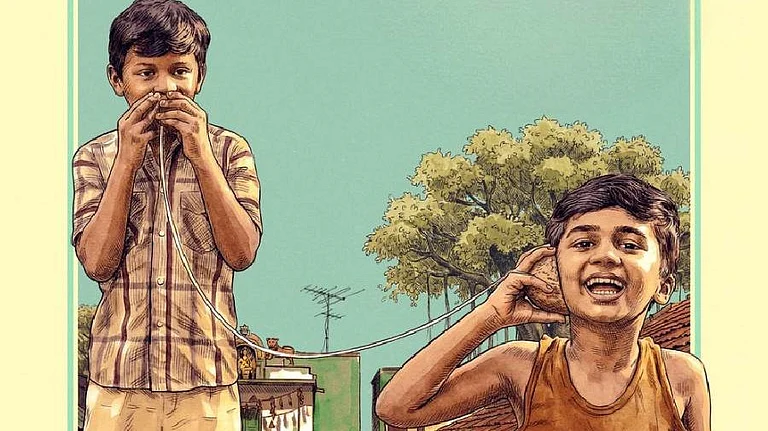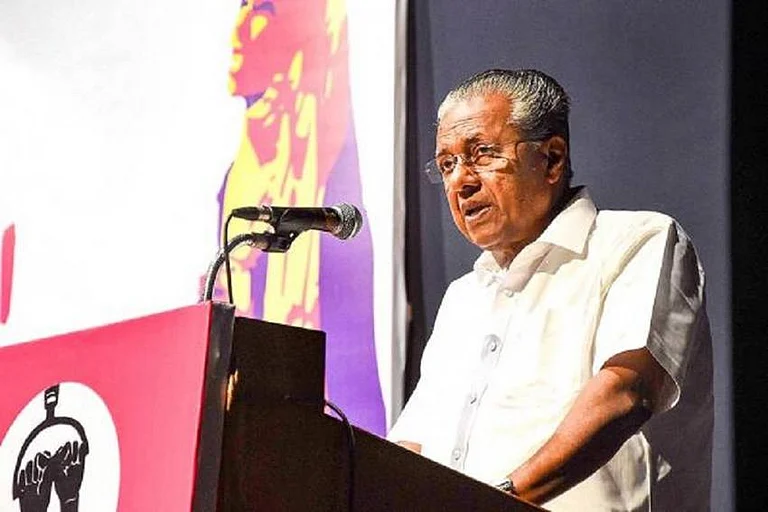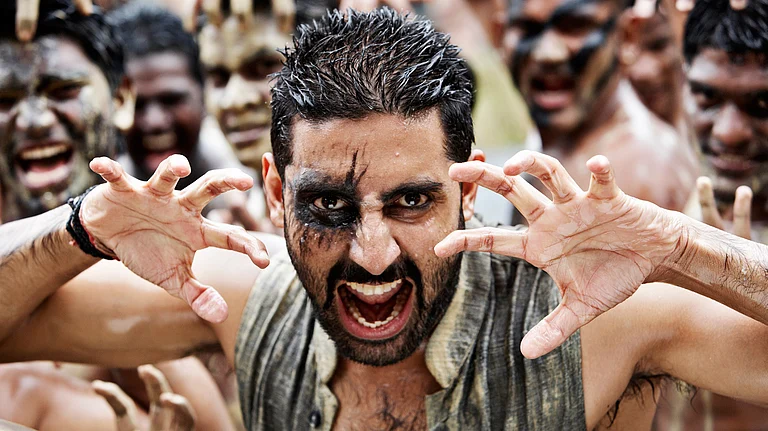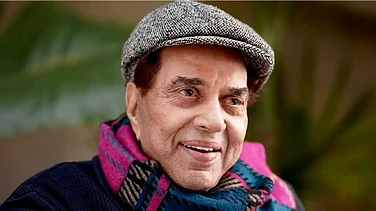November 1 marks Bollywood star Aishwarya Rai Bachchan's 52nd birthday.
She has completed 28 years in Indian cinema in 2025.
She has collaborated with many well-known directors, including Sanjay Leela Bhansali, Rituparno Ghosh and Mani Ratnam.
Aishwarya Rai Bachchan has been one of the most polarising actors in Indian cinema—where she completed 28 years in 2025. Her beauty became the prism through which her talent has been constantly questioned or diminished. She found credence through her collaborations with the likes of Mani Ratnam, Rituparno Ghosh, and Sanjay Leela Bhansali as she navigated through becoming one of the most influential celebrities to emerge from India. Among her cinematic ventures, It is her collaborations with Ratnam that have been the most intriguing, because she began her acting journey with him and also had a key role to play in his historical fiction feature Ponniyin Selvan (2022, 2023).
Across 25 years of collaboration, Ratnam has charted Rai’s evolution as an actor through the emotional architecture of performing femininity and disenchantment. Where Ghosh stripped off all her glamour and explored the interiority of her characters, and Bhansali turned her into an icon of emotional spectacle, Ratnam saw and utilised both aspects.
The essence of feminine disenchantment in Ratnam’s cinema has not been through the loss of innocence, but the birth of insight. Be it in Iruvar (1997), Rai’s cinematic debut, or Ponniyin Selvan I & II, Rai’s characters begin as the woman who believes in her own idealism, only to then become the woman who becomes disillusioned and undone. She is simultaneously the harbinger and witness of the male protagonist’s downfall as well its collateral damage in Ratnam’s tales.
Through her dual roles in Iruvar—as Pushpavalli, a shy, young woman who becomes a politician’s wife, and as Kalpana, an ambitious starlet who captures a leader’s imagination—Ratnam seeded Rai’s actor-identity beyond pageant-star and then brought it full circle as she portrayed the dual roles of Nandini and Mandakini in Ponniyin Selvan in what can be seen as a star-actor fully harnessed.

For someone who had entered public consciousness as Miss World and whose beauty had preceded her acting debut, Ratnam’s choice to launch her in a politically charged Tamil film was interesting. Where other directors would later linger on framing her as divine feminine made flesh, Ratnam’s camera neither worshipped nor diminished her beauty. Instead, it recontextualised it. Pushpavalli’s beauty was her vulnerability; Kalpana’s, her ambition. The duality of these roles mirrored the two gazes that would chase Rai throughout her career—the one that objectified her and the one that demanded she transcend it. Ratnam, in many ways, offered her the grammar to exist between those two gazes.
Rai’s dual roles in Iruvar both orbit male ambition. Pushpavalli marries Anandan (Mohanlal), only to be sidelined by his political and cinematic ascent. Kalpana, the actor, falls for him as well, believing in the dream he embodies. In both avatars, her characters love the idea of the man more than the man himself and both are destroyed by it. The film treats her disenchantment as a quiet tragedy; her loss of idealism mirrors Anandan’s own corruption by power.
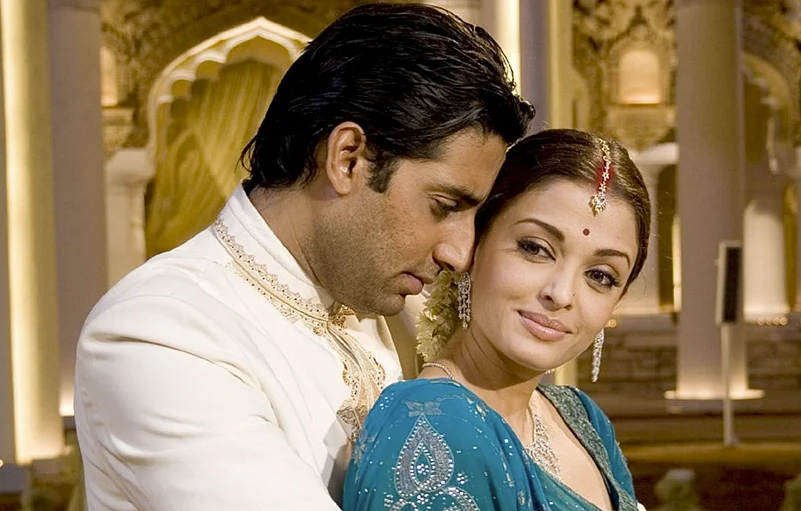
A decade later, Guru (2007) marked a different inflection point. By then, Rai had become a household name. In Guru, Ratnam gave her something that mainstream Hindi cinema rarely did—a marriage that grew on-screen, ripening with time, weariness, and affection. As Sujata, the wife of a driven industrialist, Gurukant (played by Abhishek Bachchan), Rai grounded the film’s masculine ambition with a kind of moral ballast. Her presence was the opposite of spectacle—her stillness there to absorb his volatility.
Halfway through Guru, Sujata is no longer the girl who dances in the rain; she’s the woman watching her husband make moral compromises in pursuit of success. The film doesn’t dramatise this disillusionment in the usual way. There are no melodramatic confrontations. Instead, you see Sujata’s disenchantment in her silences, her restrained affection, the way she stands a little apart when the crowds chant her husband’s name. Her final gaze at Guru isn’t worshipping, it is lucid. That’s how Ratnam lets his female characters outgrow the man she loves, even if she stays beside him.

In Raavanan (Tamil) and Raavan (Hindi), both shot simultaneously and released in 2010, Ratnam reimagined the Ramayana through moral ambiguity rather than mythic clarity. Rai’s Ragini, based on Sita, is caught between her upright police officer husband and her outlaw captor. She becomes the axis of this tension. But by the end, she is no longer firm in her moral certainties. As Ragini’s fear gives way to empathy, Ratnam gets to dissolve the binary of hero and villain. Rai’s performance traces that unravelling with a tremor of disbelief and dawning recognition that virtue and violence often share a face. Even then, her awakening is not redemption, but disillusioned clarity.
And then, Ponniyin Selvan happened. The actor once known for her beauty is now playing a woman who uses that very distraction as strategy. The poster declared “Vengeance has a beautiful face,” but on screen, Ratnam subverts it. Nandini’s beauty is not her power, her intelligence is—but even that does not spare her from ultimately becoming a pawn in the juggernaut of the machinery that is power, politics, and patriarchy.

If one were to trace Rai’s career through these Ratnam films, it reads almost like a heroine’s coming-of-age. With Ghosh, Rai was emotionally naked. With Bhansali, theatrically divine. With Ratnam, she’s human and very much fragile, furious, and fascinating. In Iruvar she’s muse, in Guru she’s partner, in Raavanan she’s a survivor, and in Ponniyin Selvan she’s an avenger. It’s an evolution in terms of authorship and hopefully, there is more to come.






